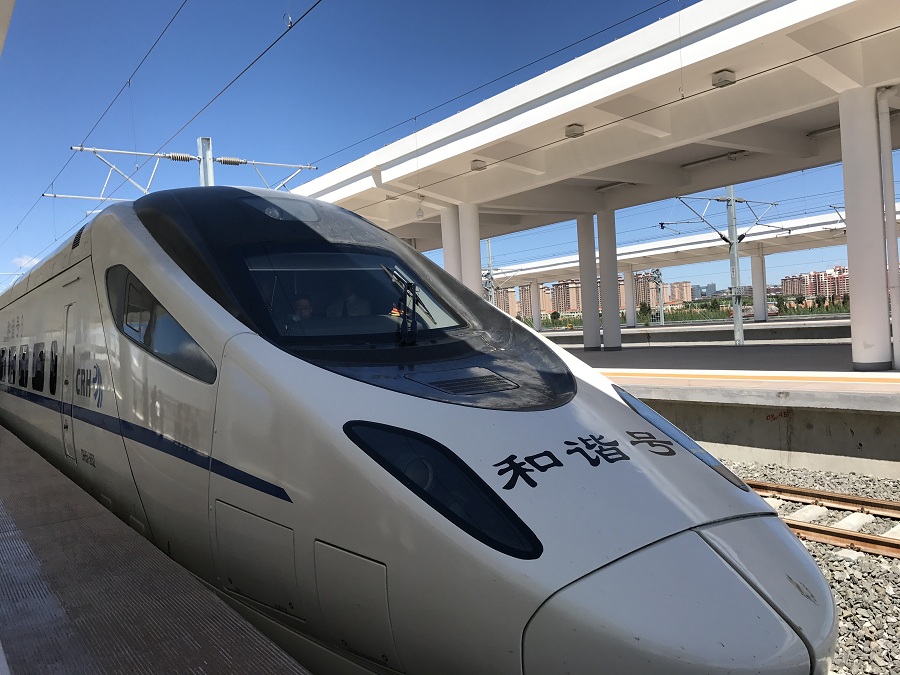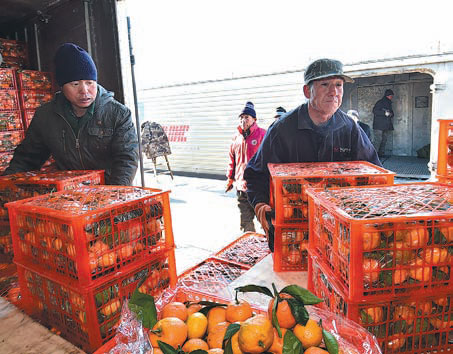Moscow and Beijing bank on major initiative to boost trade
By Zhong Nan (China Daily)
Updated: 2015-12-16
The Belt and Road Initiative will help China and Russia upgrade their cross-border economic cooperation in trade and investment as both nations see slower growth, said senior officials.
The initiative was put forward by President Xi Jinping in 2013 to rejuvenate the ancient trade route connecting eastern China and Europe.
The initiative's proposed coverage will affect nearly 3 billion people and represent one of the biggest international markets in the world.
Alexander Tsybulskiy, Russia's deputy minister of economic development, said Russia is planning to establish 14 economic development zones and diversify the functions of Zarubino Port, which is 18 kilometers from its border with China.
Unlike special economic zones in China, which are located within its border provinces and enjoy favorable trade laws and business regulations compared to the rest of the country, Russia's economic development zones are established in inland areas. The Russian government is planning to provide more flexible policies to these zones to attract foreign companies, especially from China and South Korea.
Less expensive leases for land use, tax and insurance preferences, better infrastructure and public services, simplified customs procedures and favorable conditions to attract high-end talent will all be provided to foreign investors looking to set up businesses.
"The new zones will offer tax benefits, easier goods clearance, work visas and cross-border transportation facilities to Chinese businesses, especially infrastructure companies, to help the region build a better industrial and urbanization foundation," Tsybulskiy said.
He said government work groups for border area trade and economic zone cooperation will be established and supervised by the Economic and Trade Cooperation Branch Committee of China-Russia Prime Minister Regular Meeting Committee.
Song Yaoming, commercial counselor with the Asian affairs department of the Ministry of Commerce, said Chinese investors have strong experience in building large-scale infrastructure projects in Africa, South America and the Middle East.
"With sufficient policies and financial support from both sides, Chinese investment and expertise will not only be used in projects for the 2018 FIFA World Cup in Russia but also in the eastern regions of Russia to further connect more potential market destinations in Northeast Asia," said Song.
Ling Ji, director-general of the department of Eurasian affairs at the Ministry of Commerce, said large-scale infrastructure projects - including energy and resource exploration, manufacturing, aviation, nuclear power and shipbuilding - offer the best potential because of their long-term significance to Chinese companies.
Bilateral trade between China and Russia dropped by 29.3 percent year-on-year to $61.34 billion between January and November of this year, mostly because of the depreciation of the rouble and the declining prices of commodities. According to customs data, however, the trade volume of agricultural products between the two sides doubled during the same period.
Shouguang, a major agricultural city in East China's Shandong province, will establish the Shouguang-Russia Border Trade Association to diversify export channels in global markets next year.
Northeast China's Heilongjiang province, which borders Russia, will also build 20 vegetable farm bases to grow carrots, onions, tomatoes, sugarbeet, potatoes and sweet peppers in select counties and towns to develop border trade.
zhongnan@chinadaily.com.cn
|
Workers moved oranges from a Chinese freight train to a Russian train in Erenhot, Inner Mongolia autonomous region, on Dec 4. The Russian train then traveled to Krasnoyarsk, marking the first time that Chinese products had been directly exported in refrigerated freight trains leaving from Erenhot. Ren Junchuan / Xinhua |

High-speed train debuts in Inner Mongolia
A bullet train departed Hohhot East Railway Station for Ulanqab marking the start of high-speed rail services using Inner Mongolia’s first newly-laid high-speed railway on Aug 3.

